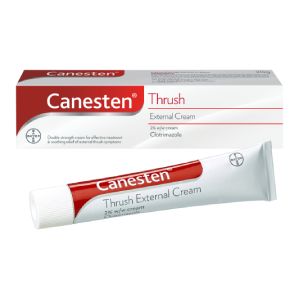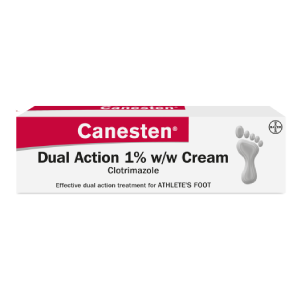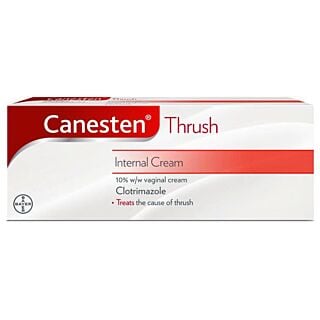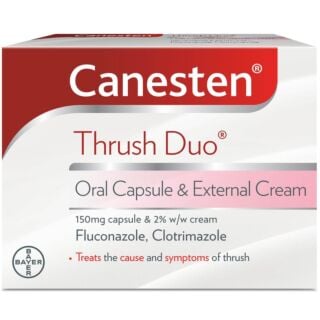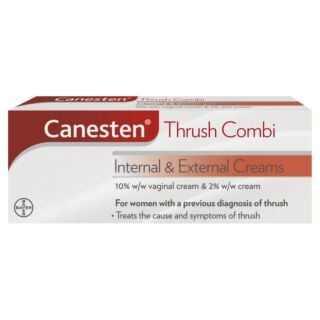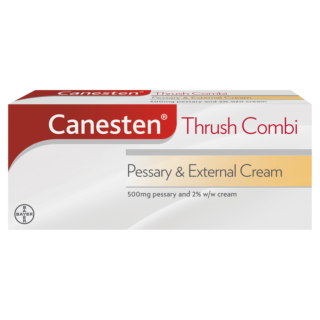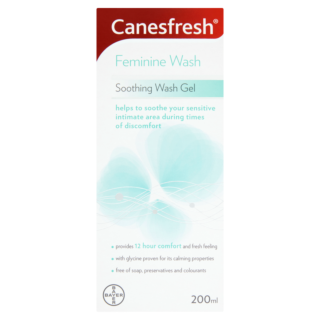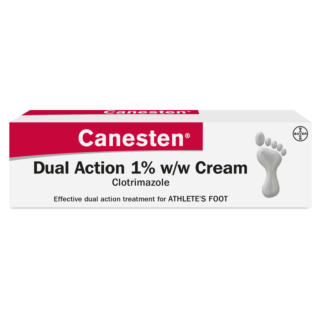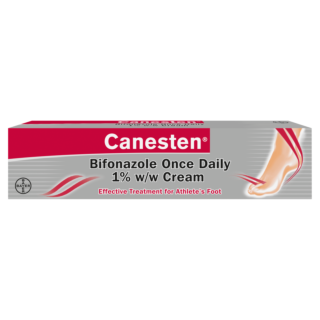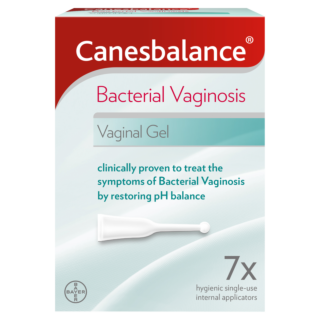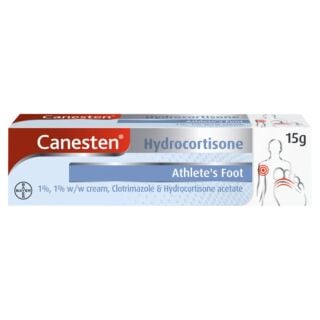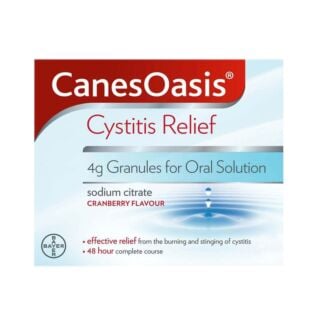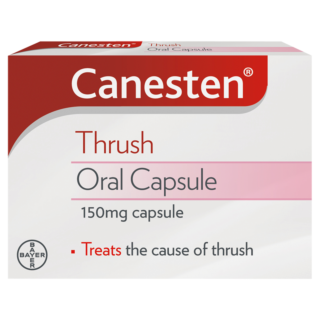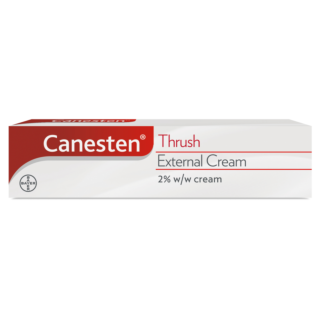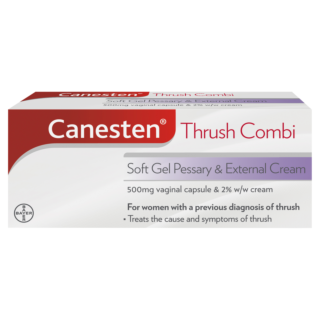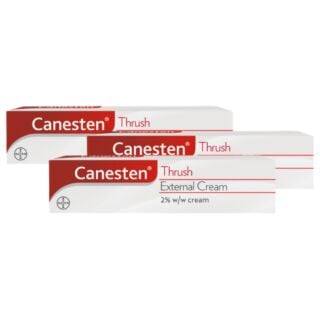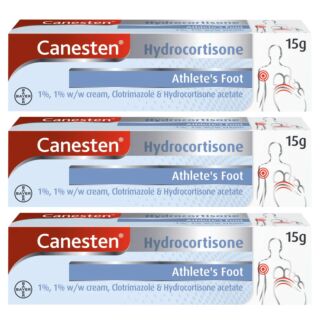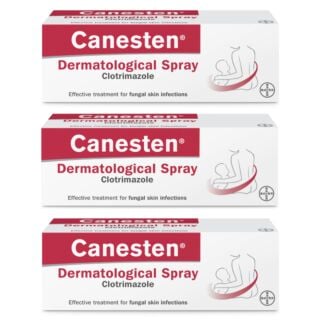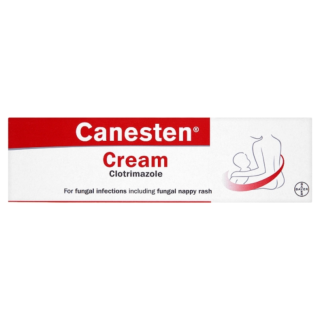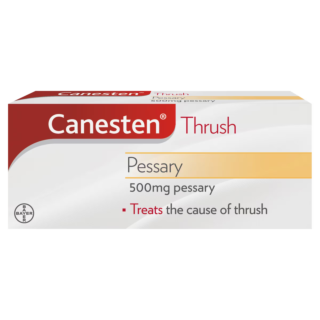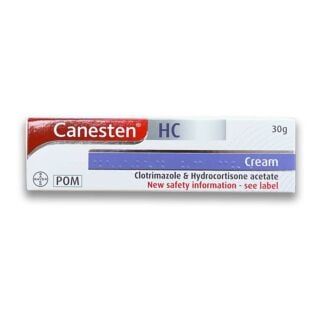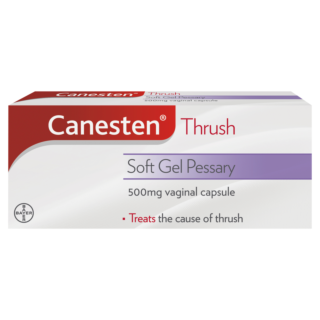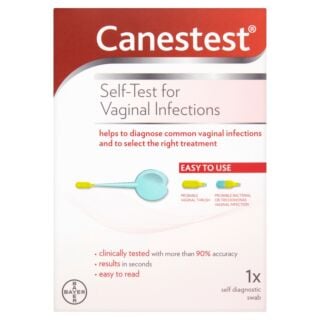Canesten
Canesten is the UK's number 1 intimate healthcare brand, helping people around the world manage yeast infections for over 40 years.

Free delivery when you spend over £39

100% discreet delivery for every item ordered

Fully regulated UK pharmacy
Are there any home remedies for thrush?
We’ve found a few simple changes you can make to help keep thrush at bay.
For starters, avoid using perfumed products and deodorants around your intimate area, instead use water to wash your penis or vagina and make sure the area is properly dried after cleaning.
Taking showers instead of baths can help with this.
Wearing cotton underwear instead of synthetic materials can also help to prevent thrush, as can changing your underwear after swimming or working out.
If you have thrush, you may want to consider avoiding sex until the infection has cleared.
However, if you do choose to have sex, try using a condom to prevent your yeast infection spreading to your partner.
Why do you get thrush more often during pregnancy?
Thrush is a common yeast infection, but many women find that they suffer from thrush more often or more severely during pregnancy.
This is because when you’re pregnant, your body goes through lots of changes, especially in your reproductive system.
The changes in your hormone levels throughout your pregnancy can mean that your intimate area is thrown out of balance, creating the perfect conditions for Candida to thrive.
This is why many women who have never experienced thrush may find that they struggle with the condition much more often when they’re pregnant.
What is fluconazole thrush treatment?
Fluconazole is one of the most common treatments given for vaginal thrush and thrush that affects the penis, which are both caused by fungi called Candida.
Not only can a single treatment of fluconazole treat your thrush effectively, but it can be used by couples who pass the infection to each other when they have sex.
If you and your partner have picked up thrush and can’t seem to get rid of it, this could be the answer to finally shaking that annoying infection.
Can I catch thrush from my baby while breastfeeding?
Yes, it is possible to catch thrush from your baby while breastfeeding.
If your baby has oral thrush then the regular contact between yourself and your baby means that you could also develop a yeast infection in your breasts or nipples.
This is why your doctor may also want to test your breasts for thrush if your infant has a yeast infection in their mouth.
It’s not unusual for both a breastfeeding mother and their baby to have thrush at the same time.
Can men get thrush?
If you’re a man who doesn’t know very much about thrush, then you might be feeling a little confused right now.
Can men even get thrush? Isn’t it a vaginal infection?
Well, I’m sorry my male friends, but when it comes to thrush you can suffer just as much as the ladies, as this infection doesn’t discriminate by gender.
Yes, men can get thrush and not just around their penis, but in other areas such as their mouth too.
Can I use fluconazole for recurrent thrush?
If you have thrush that keeps coming back or if you have had thrush more than 4 times within a year you should speak to your doctor as soon as possible.
They will want to investigate the cause of your infection so they can treat it effectively and stop it from coming back.
Fluconazole can be used for recurrent thrush, but only if your GP has recommended or prescribed it for you.
Can you use thrush tablets and cream at once?
When you’ve got thrush, you’ll need to treat the infection with fluconazole, but how do you relieve the itching and discomfort?
Alongside fluconazole, you can use an external cream called clotrimazole to soothe your symptoms while the infection is clearing up.
There are also vaginal pessaries, soft gel pessaries and internal creams that can be used to relieve the symptoms of thrush.
Do I have male thrush or balanitis?
Some people who have balanitis might confuse their condition with male thrush, which is why a diagnosis from a medical professional is so important.
The symptoms are very similar, however, if you have thrush you will sometimes notice a thick, white, cottage cheese-like discharge that doesn’t occur if you have balanitis.
To be absolutely sure which you have, make an appointment to see your doctor as soon as possible.
How do thrush tablets work?
Vaginal thrush is a very common problem amongst women, and the most effective way to treat the condition is with fluconazole.
Fluconazole works by killing the fungus (or yeast) causing the infection.
It does this by making holes in its cell membrane so the contents leak out, treating the infection and allowing your symptoms to improve.
What are the symptoms of thrush?
Thrush is a common yeast infection that can affect both men and women.
It can be an uncomfortable or embarrassing issue, but it isn’t caused by poor hygiene and it’s not sexually transmitted. The symptoms of vaginal thrush include:
- White vaginal discharge that may resemble a ‘cottage cheese’ texture. This is usually odourless.
- Itching and irritation around the vagina
- Vaginal pain during sex
- A stinging sensation when urinating
There are a lot of different types of vaginal infection and it may be confusing to try and figure out if you’ve got thrush or not.
If you’re unsure, see your GP or visit a sexual health clinic for advice.
Vaginal infections are nothing to be embarrassed about and they can be cleared up quickly and effectively with the right treatment.
What causes vaginal thrush?
Thrush is a type of common fungal infection, often generally referred to as a yeast infection. It can affect both men and women in various parts of the body, commonly the genital regions or the mouth. Thrush is not a sexually transmitted infection, it can occur for no obvious reason at all. It is more likely, however, to develop with:
- Uncontrolled diabetes
- HIV infection
- Cancer
- Dry mouth
- Pregnancy
- Smoking
- Wearing dentures that don’t fit well
- Taking certain medications, including corticosteroids, antibiotics or birth control pills.
Sometimes, certain conditions or medications can cause thrush to keep returning. In this case, a medicine like Diflucan can help to prevent and control infections.

